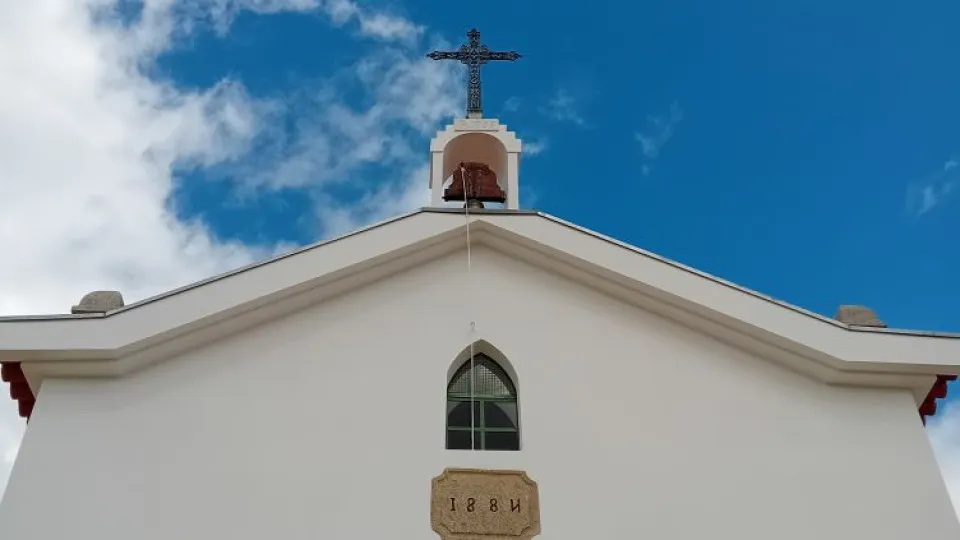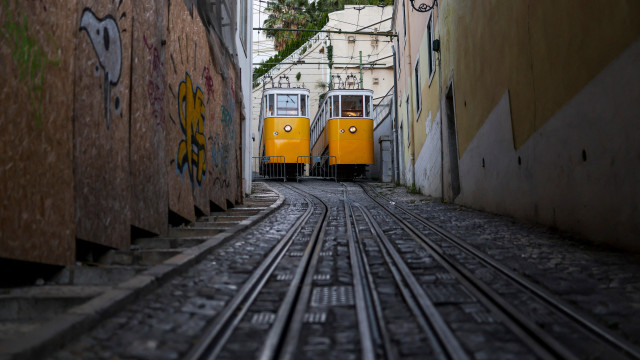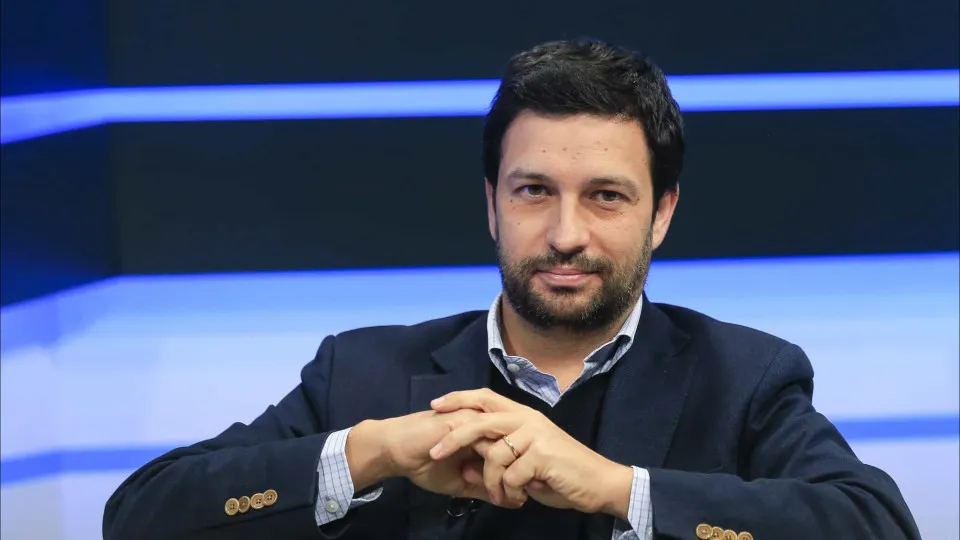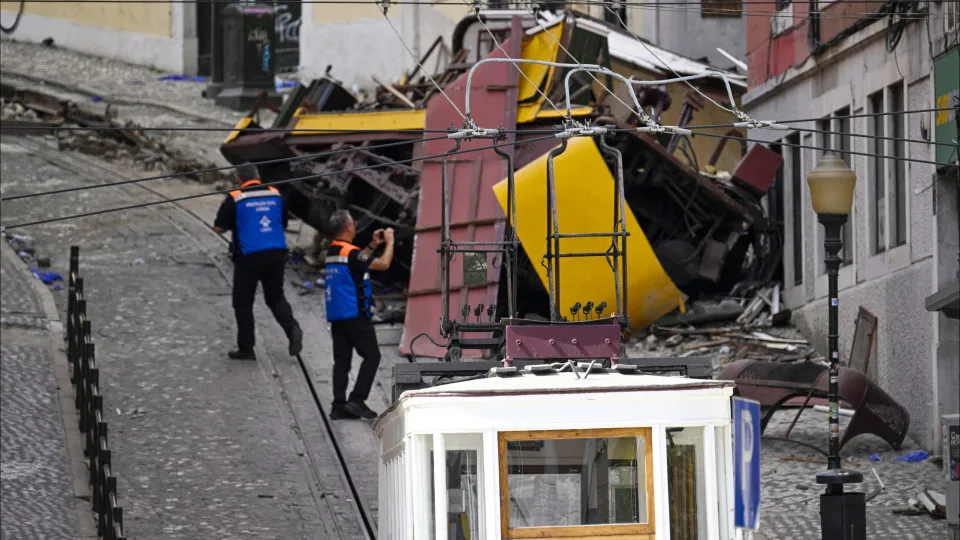“I am an honest man. As a musician, I am honest. This is not self-praise, not self-flattery, it’s an acknowledgment,” states Luís Represas. The singer spoke with Notícias ao Minuto a few days before taking the stage at the 10th edition of the Festival F in Faro, today, September 4.
And what does it mean to be honest in music? “It’s doing what our soul, what our state as a composer tells us to do. That’s where we convey our emotions, our concerns, our experiences, our way of seeing the world, life, and people and thus being honest.”
In truth, Luís Represas needs no introduction, with nearly 50 years in the music industry. He began his career in the 70s as a member of the band Trovante and emerged as a solo artist in the 90s.
At 68, Luís Represas continues to enjoy the pleasure of performing for his audience, as he will this Thursday, September 4. What can be expected from this concert? There will be tracks from his latest album, ‘Miragem,’ released last year, but the focus will not solely be on this album, as successful hits marking his career are a must-play.
“Times are different now,” he commented. “Of course, my ‘Miragem’ will be played, but in these festivals, we must bring people what they want and love to hear. I also see it from the consumer’s perspective. If I’m at a festival concert and the artist doesn’t play the songs that bring me references and connect me to them, I can get a bit annoyed,” he explained, indicating the show will feature a bit of ‘everything.’
“The concert will include mostly my own songs that relate to my history, but also some older songs from Trovante, which I have never stopped playing,” he added.
 Cartaz Festival F© Festival F
Cartaz Festival F© Festival F
But which songs are essential at a Luís Represas concert?
They are the ones people feel must be heard. For example, ‘Feiticeira,’ ‘Da Próxima Vez,’ ‘A Hora do Lobo,’ and for Trovante, ‘Perdidamente’… The most well-known ones because, realistically, an album with 13 songs usually boils down to one or two, maybe three. Except for the loyal listeners who buy the album and know it inside out, but that’s a small slice compared to the general audience scattered across the country.
These are more sensitive to the songs broadcast by media, primarily radio, which I believe remains irreplaceable by platforms like Spotify because on these platforms, we choose what we want and often overlook what’s there.
Do you feel that radio continues to play a significant role in music?
Absolutely! It plays that role of bringing music to people, not by their own choice. Using myself as an example, if I release a new album like ‘Miragem,’ and if the radios don’t play its songs, either people consciously seek it out on a platform, or if not, and if it plays on the radio, they might hear it there. This is common to all of us, it’s a universal experience for all artists.
When we watch musicians and artists from my generation, even slightly younger ones, we often realize that the songs people want and love to hear at concerts are the older ones. Those were heavily promoted and became hits.
After these 50 years, I continue to see a concert and stepping on stage as something of utmost responsibility, but on the other hand, something that gives me great pleasure. What I love to do is be on stage.
Is it a gesture of affection for an artist, to recall their repertoire?
Without that repertoire, we are nothing. We grew and arrived here over all these years because of it, because of what we’ve been doing and what people have come to know and recognize.
Regarding concerts, compared to the early days in the 70s with Trovante, I believe the preparation or even the way you experience concerts has changed a lot nowadays?
Yes, it’s very different. Regarding production, logistics, and all of that, it’s very, very different. However, from an artistic perspective, for me, it’s exactly the same. After 50 years of work, I continue to see a concert and stepping on stage – whether at Festival F, the Pavilhão Atlântico, or abroad – as something of utmost responsibility, but on the other hand something that gives me great pleasure. What I love to do is be on stage.
This break was particularly ‘sui generis’ because we had the pandemic, which played as strange a role as it itself is. Some people thoroughly enjoyed the pandemic. I did not.
Ultimately, it’s on stage where you see the results of your work…?
That’s the final goal when we get on stage. When people ask if I’m tired after all these years of performing, I say quite the opposite. If we don’t do this, we are resigning ourselves and acknowledging that we’re tired of what we chose to do in life and what we love to do.
An artist, a musician, is an artist for life. We don’t declare retirement. Those who do this with soul and heart continue until the end – as long as we have the strength and that’s what is desired.
This latest album, ‘Miragem,’ came about six years after ‘Boa Hora’ in 2018. It’s not the first time you’ve taken a break between albums, although this one was longer. Sometimes is it necessary to breathe between records?
This break was particularly ‘sui generis’ due to the pandemic, which played as strange a role as it itself is. It was strange and unexpected. Many people thoroughly enjoyed the pandemic, writing and composing a lot… I did not. Being forced to stay at home and isolate from people… What makes me compose and write is life happening, seeing and meeting people, feeding off society…
I composed this album in about a year, then went through the entire production process. Between composition and production, it took about two years. The pandemic brought about a delay, which perhaps was beneficial. It gave us a space we often don’t impose on ourselves. It was imposed here. However, when I began working and gathering repertoire, I did so with great joy. That’s what drives us too.
What does this ‘Miragem’ bring us, or rather, who is Luís Represas today as a musician with 50 years of career behind him?
I’ve always enjoyed counting on the contributions of musicians and arrangers. In the case of ‘Miragem,’ I deviated from the norm, which is working with the musicians who perform with me in concerts and who play with me daily. I chose to work with Ricardo Leão, the author of the song ‘Miragem,’ which we composed about ten years ago in Brazil. In conversation, we decided he would be the producer and arranger of this album – he was in Brazil with his musicians, using his hardware and natural environment, taking the songs I sent, completely raw and bare, just guitar, voice, lyrics, and some ideas/references on the direction I wanted, and worked like that. We worked across an ocean, but with the ease of communication available today.
On the one hand, I did what I love to do, which is experimenting and playing with other musicians, trying out different minds, approaches, and giving a lot of freedom to how those musicians can express themselves. This also happens with me on stage. On the other hand, there was some distance which hadn’t been present before concerning the production of the album itself. I never once sat in a studio with Ricardo Leão except 12 years ago when we recorded the ‘Miragem’ demo.
Opening the door to other ‘worlds’…
This freedom to work in music, for me, is fundamental and has always been. In fact, my first solo album in ’93 was recorded in Havana with Miguel Núñez, with Cuban musicians and just one Portuguese musician. I’ve always loved exploring that side and taking full advantage of it. It’s always enriched me.
Comparing the current Luís with the one from 1976 is difficult because I was a member of a collective, Trovante. When comparing my solo journey starting in 92/93 with my first album till now, there’s maturation but not necessarily softness. It’s about not rejecting, often, due to prejudice or for thinking more with others’ minds than my own, which also comes down to insecurity. Let the first musician say they’re not insecure. We all are, but some have a thicker skin layer than others.
I am the same, but I’ve learned with myself. I would do everything the same way I’ve done until today. Making minor adjustments here and there, but basically the same way.
But do you feel that after 50 years, you approach the world of music perhaps with more ease? Creating new music, presenting it, getting on stage… Do you now live it differently, perhaps more lightly?
No, because I’ve never lived it in a heavy way.
I’m asking in the sense that all these years possibly gave you more confidence or a different position?
No, it remains the same. The word confidence or self-confidence can have various meanings. Perhaps in the beginning, it was harder to control that confidence, and it lasted until stepping on stage or until receiving the first opinions on the album once it’s out. There’s a big difference regarding the music world nowadays. Back then, when an album was released, it awaited a lot of opinions.
The music world itself has changed, indeed…
Of course! When the album was released, we waited for reviews, what was said, the radios… Nowadays, not so much.
Even regarding dissemination, there are many more outlets now, as you mentioned with Spotify and even social media or YouTube…
There are more showcases, but they’re wrongly signposted. Enter a supermarket, and if you see several showcases without labels, with potatoes mixed with shampoos or wine, suddenly you see it all mixed up, and you don’t know what to do. Either you know exactly what you want and will search amidst it, or you’ll miss it otherwise.
The internet has little adhesive power. There’s a lot of dissemination, but what do people actually retain from that dissemination?
Today it’s easier to get music to people, and hence there are more choices?
I believe it’s easier to build target audiences rather than broadly spread the music to a vast, eclectic audience that can embrace my music as much as any other’s. This mobility. This understanding of the showcase, the mix that exists, leads people to seek only one thing, perhaps not noticing others right beside.
Thus the role of radio, still presenting various music?
If they do so. If radios narrow their offerings, they also create ‘focus audiences.’ Everyone who has been around longer and witnessed this whole transformation is still processing and will continue to do so. I have four children, the youngest being 22 and the eldest 33. I often tell them sometimes what they see as our inability to swiftly handle all the information today, which for them is the reality they were born into, we had to learn how to work a cassette player, understand that man landed on the moon, then figure out the first computers or calculators – which eventually work on batteries and no longer on winding keys…
We had to learn it all, and oftentimes it’s discomforting for me to strive to keep up to date and coexist with all these developments. It’s wonderful and great, but we must be aware not to overestimate ourselves… because we’re not. We’re neither supermen nor superwomen.
Having witnessed this evolution and having had to adapt, do you experience any difficulties?
No, I wouldn’t call it difficulty. The difference lies in adapting to current circumstances. Because – and we must view it with some coolness – no one has the absolute truth, no one is the fountain of knowledge. Everyone is learning, trying to some degree to have their moment in the sun, not only for themselves but for the musician they represent. There’s not nearly as much absolute certainty today as there was for years.
That’s a big issue. When contemplating how to promote certain things, how to reach a vast audience, numerous ideas stem from uncertainty and lack of exact science. Some interesting concepts still repeat. Today’s strategic promotion plan resembles one from 1982 in many ways.
We mustn’t forget that we’re a small country, not part of a massive industry, and hence we should strive for greater creativity in differentiating ourselves, our approach, and dissemination methods. Not rushing to clone or mimic everything done externally. Because it might or might not work.
Promotion today heavily leans on social media, the internet, which wasn’t the case 20 years ago…
True, but significant is the dichotomy between information and formation. The internet has little adhesive power. There’s vast dissemination, but what is actually retained from it? The sheer volume and fleeting speed of things, none of it sticks. It’s more like the adhesive of a post-it. Plenty of information, minimal retention.
Regarding Trovante’s return, is the plan only to perform the two scheduled concerts in 2026?
Yes, it was not our initiative. We were contently dormant, each on our path and work. The proposal came from Sons em Trânsito to celebrate 50 years since our formation – not a 50-year career because Trovante lasted 16 years.
We discussed amongst ourselves, thought it would be fun, and we at least reconnect with each other. We will have fun and give audiences a taste of what Trovante was. With a few more years under our belts, we’ll play the music unchanged. The idea is for children or parents who never saw Trovante to now have the chance.
Was there any hesitation, or did you immediately agree to this return?
Hesitations are natural, there’s much to consider, especially for those living active artistic careers. We all have our lives and had to reflect on what this would entail. On things that brought us much joy and meaning in life, such decisions can never be made lightly without much thought.
That’s in practical career terms, but how about nostalgia regarding this return…
It’s quite humorous, although in my shows I’ll play some Trovante songs because they’re part of my life and archive. But others have lain untouched. It’s pondering how we’ll play them again, picking up the instruments and performing similarly, the same exercise…
Suddenly, being on stage again, gazing at one another, recalling various instances…
I bet there are many stories…
Yes, and sometimes they even distract us since we reminisce while on stage. It’s pleasant, but ‘too much water drowns the plant.’ Thus, these experiences should be lived in appropriate measure.
But rehearsals haven’t started yet?
No. Each is working independently, and then we’ll simply come together, assemble the pieces, and with a heart full of memories, reflect that what’s about to happen is bringing a trove of delights to the surface.




